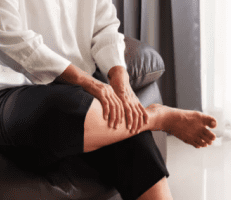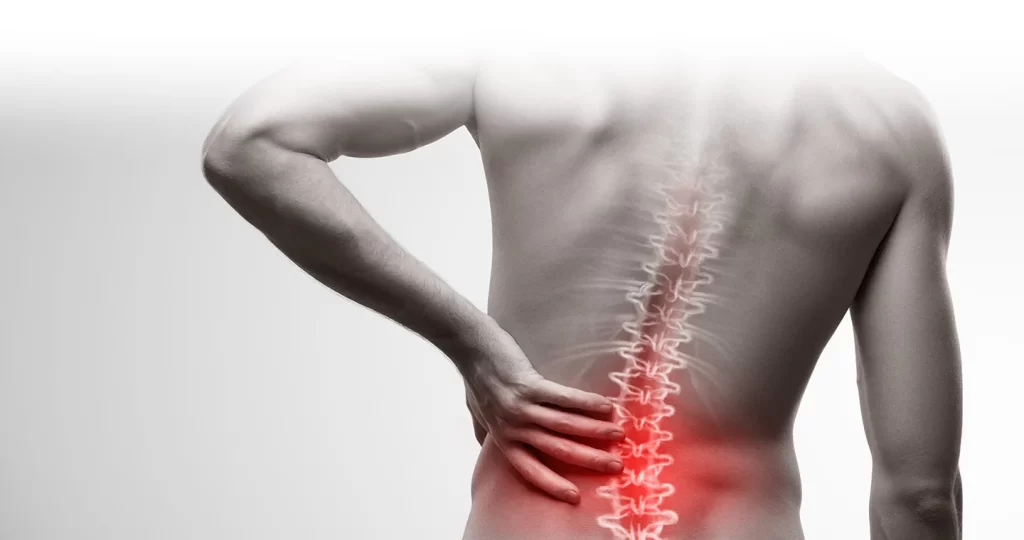Back pain can be caused by a variety of factors, often involving the muscles, nerves, bones, joints, or other structures in the spine. Common causes include:
- Muscle or ligament strain: Repeated heavy lifting or a sudden awkward movement can strain back muscles and spinal ligaments.
- Bulging or ruptured disks: Disks act as cushions between the bones (vertebrae) in your spine. The soft material inside a disk can bulge or rupture and press on a nerve, causing pain.
- Arthritis: Osteoarthritis can affect the lower back. In some cases, arthritis in the spine can lead to a narrowing of the space around the spinal cord, a condition called spinal stenosis.
- Skeletal irregularities: Scoliosis, a condition in which your spine curves to the side, can also lead to back pain, but typically only if the scoliosis is severe.
- Osteoporosis: Your spine’s vertebrae can develop painful fractures if your bones become porous and brittle.





